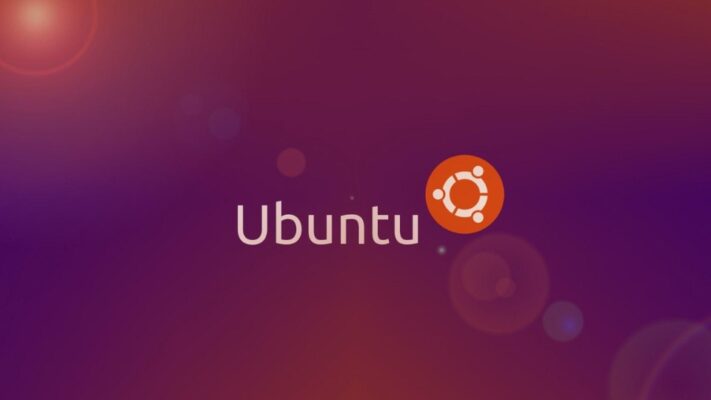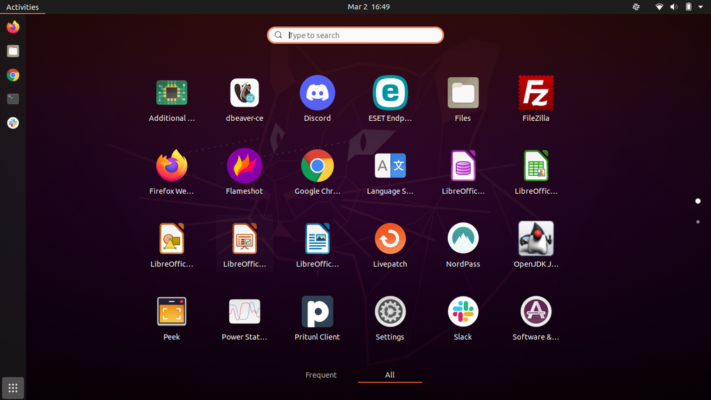Whether you’re a beginner or an experienced user, Ubuntu offers an accessible and powerful platform for personal computing, development, and server environments. This article dives into what ubuntu is, the key features, use cases, and benefits of Ubuntu, exploring its role in desktop computing, servers, cloud computing, and even the Internet of Things (IoT).
What is Ubuntu?
Ubuntu is a free and open-source Linux distribution based on Debian, known for its ease of use, regular releases, and strong community support. It’s widely used for desktops, servers, cloud computing, and Internet of Things (IoT) devices. It’s a popular alternative to Windows and macOS.

History of Ubuntu
Ubuntu was first launched in 2004 by Mark Shuttleworth and his company Canonical Ltd.. The project was created with the goal of making Linux more accessible to the masses by offering an easy-to-use operating system that anyone could install and use. The name “Ubuntu” is derived from an African philosophy meaning “humanity to others” or “I am because we are,” which reflects the project’s ethos of community-driven development.
Since its inception, Ubuntu has become one of the most popular Linux distributions, consistently topping usage statistics for desktop Linux distributions. Its ease of use, extensive software repositories, and regular updates have made it a reliable and powerful operating system for both individuals and businesses alike.
Key Features of Ubuntu
1. User-Friendly Interface
One of Ubuntu’s biggest selling points is its user-friendly graphical user interface (GUI), which is designed to be intuitive and easy to navigate. The default desktop environment, GNOME, provides a clean and minimalist layout, making it easy for both new and experienced users to find their way around. For those who prefer a different desktop environment, Ubuntu also supports other popular environments like KDE Plasma and Xfce.
Ubuntu’s software center offers easy access to thousands of applications, allowing users to easily install new software with just a few clicks. The operating system also features automatic updates for both software and security patches, ensuring that your system stays up-to-date without requiring too much maintenance.

2. Open Source and Free
Ubuntu is open-source, meaning that its source code is freely available for anyone to view, modify, and redistribute. This makes it a highly customizable and transparent operating system. Additionally, Ubuntu is completely free to download and use, with no hidden licensing fees. This makes it an appealing option for those who want a high-quality operating system without the cost of proprietary solutions.
3. Wide Software Support
Ubuntu boasts an extensive software repository that provides access to thousands of applications. These range from productivity tools like office suites to creative software for graphic design and video editing. Whether you’re into programming, web development, gaming, or multimedia production, Ubuntu offers a wide range of applications to meet your needs.
Additionally, Ubuntu also supports Snap packages, a modern package management system that allows developers to distribute their applications in a containerized format. This ensures that applications can run on any Linux distribution that supports Snap, making it a powerful and convenient way to manage software.
4. Security
Ubuntu is built with security in mind, with regular security updates and patches that keep the system protected from vulnerabilities. Ubuntu also includes built-in AppArmor, a security framework that restricts application access to system resources, preventing potential attacks.
By default, Ubuntu comes with a firewall and includes SELinux (Security-Enhanced Linux) for additional protection. It also employs automatic updates, so important security patches are installed as soon as they are released, ensuring that users are always protected from the latest threats.
5. Long-Term Support (LTS)
One of the standout features of Ubuntu is its Long-Term Support (LTS) releases. These versions are supported with security updates, bug fixes, and performance improvements for five years from their release date. This makes Ubuntu an excellent choice for users who require stability and security over a long period. LTS versions are often used in enterprise environments and production servers, where uptime and reliability are critical.
6. Community and Documentation
Ubuntu benefits from a large and active community of users and developers. The Ubuntu forums, online help guides, and IRC channels offer plenty of resources for troubleshooting, advice, and collaboration. This community-driven approach ensures that Ubuntu users always have a wealth of support at their fingertips.
The official Ubuntu documentation is extensive and regularly updated. Whether you are setting up a server, configuring your desktop, or learning how to use advanced tools, the detailed guides and tutorials available on the Ubuntu website provide the answers you need.
Ubuntu’s Use Cases
Ubuntu can be used for a wide range of purposes, from personal computing to enterprise applications. Below are some of the most common use cases:
1. Desktop Computing
Ubuntu is a popular choice for personal and home users due to its ease of use, security, and cost-effectiveness. As a desktop operating system, it offers a fast and efficient alternative to Windows and macOS. Ubuntu can handle everyday tasks such as web browsing, word processing, and media consumption, all while being highly customizable.
2. Servers
Ubuntu is also widely used in server environments. The Ubuntu Server edition provides an efficient, secure, and lightweight solution for web hosting, databases, cloud services, and more. It’s particularly popular for cloud infrastructure and web servers due to its low resource usage and stability. Ubuntu Server also has strong support for tools like Docker, Kubernetes, and OpenStack, which makes it a great choice for businesses and developers working in containerized or cloud-based environments.
3. Development and Programming
Ubuntu is a preferred operating system for developers because of its vast software repositories and compatibility with programming languages like Python, Java, C++, and Ruby. The system supports all major development tools and IDEs (Integrated Development Environments), such as Eclipse, IntelliJ IDEA, and PyCharm. Ubuntu’s package management and compatibility with Docker and VMware also make it a great choice for developers working in containerized environments.
4. Cloud Computing
Ubuntu is a go-to choice for cloud computing environments. It is supported by all major cloud service providers, including Amazon Web Services (AWS), Google Cloud, and Microsoft Azure. Ubuntu’s cloud-focused editions, like Ubuntu Cloud, provide pre-configured images for cloud platforms, allowing users to quickly deploy scalable virtual machines for various applications.
5. Internet of Things (IoT)
With the rise of IoT devices, Ubuntu has made strides in supporting lightweight versions of its OS for IoT applications. Ubuntu Core, a minimal version of Ubuntu, is designed specifically for IoT devices, with features like transactional updates and built-in security.
Who should use Ubuntu?
Ubuntu is used by millions of people worldwide, from casual desktop users to large enterprises. Its ease of use and flexibility have made it a popular choice for developers, system administrators, and students. Ubuntu is also used in cloud environments, supported by major cloud platforms like Amazon Web Services (AWS), Google Cloud, and Microsoft Azure.
For those who are interested in development, Ubuntu offers full support for programming languages such as Python, Java, Ruby, C++, and PHP, as well as development tools like Eclipse and Visual Studio Code.
Is Ubuntu and Linux same?
Ubuntu and Linux are not the same, but they are closely related.
Linux is an open-source operating system kernel, which is the core part of any Linux-based operating system. It was created by Linus Torvalds in 1991 and is responsible for managing hardware resources and allowing software to run on a computer.
Ubuntu, on the other hand, is a Linux distribution (or “distro”) that is built around the Linux kernel. It includes not only the Linux kernel but also additional software, tools, and a graphical user interface (GUI) to make it user-friendly. Ubuntu is one of the many distributions of Linux, and it is designed to be easy to use, especially for beginners.
To clarify:
- Linux refers to the kernel (core system) that powers many different operating systems.
- Ubuntu is a specific Linux distribution that uses the Linux kernel along with various software packages to provide a complete operating system.
In summary, Ubuntu is a type of Linux, but Linux is a broader term that encompasses a variety of different operating systems (distros) that use the Linux kernel.
In conclusion, Ubuntu stands out as an excellent choice for anyone seeking a versatile and secure operating system. With its intuitive interface, active community, and broad use cases across desktop, server, cloud, and IoT environments, Ubuntu has earned its place as a top Linux distribution.
Whether you are a developer, system administrator, or a casual user, Ubuntu provides the stability, support, and performance you need. For users looking for top-tier VPS hosting with Ubuntu, VietNamVPS.net offers powerful solutions tailored to meet your business and personal needs.
